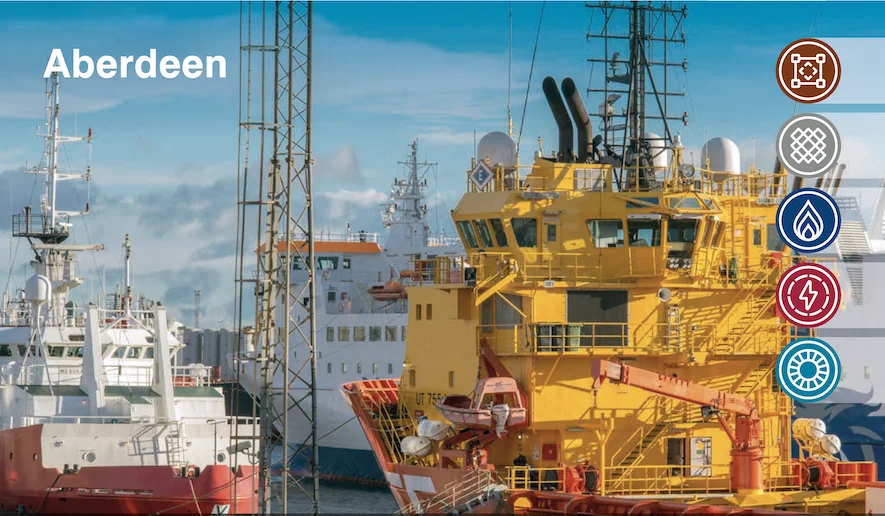
Engineering Pay in Oil and Gas: How to Stay Competitive
08 Jul, 20257 Minutes
Attracting and retaining engineering talent in the oil and gas industry is becoming increasingly difficult. Salary is a key factor, but not the only one. Expectations are shifting, especially in a market where contractor competition, project-based hiring, and inflation are all in play. Many hiring teams still rely on pay ranges that no longer reflect what engineers expect. Some offers are rejected not because they’re too low, but because they’re vague or outdated.
Raising salaries can help, but it’s not always an option, and often not the full answer. To remain competitive, oil and gas companies must rethink how they approach hiring. The energy transition is shrinking the available talent pool, and engineers now weigh offers against a broader set of priorities.
In this blog, we explore how oil and gas engineering pay has shifted, what candidates now look for, and what employers can do beyond pay to win leading talent.

Where Engineering Pay Sits Now
As an established oil and gas recruitment agency with nearly 40 years in the sector, Orion has seen how engineering salaries track with industry cycles. And right now, rates are trending upward.
Contractors typically command higher pay than permanent staff, reflecting the lack of benefits like holiday pay, pensions, and insurance. A seasoned oil and gas engineer can earn anywhere from £300-£400 per day to over £2,000, depending on experience and specialisation. The average sits around £1,000 per day for experienced professionals.
The market is tight. Many engineers have left the industry or retired, while others have moved into renewables. That means clients need to acknowledge the value senior contractors bring. Negotiations are common, and engineers will consider factors like project duration, flexibility, and location. Geography still matters - Australia leads in earning potential, while Latin America often pays below the global average.
Understanding these nuances and working with an oil and gas recruiter who knows the market can make all the difference.
What Engineers Prioritise in 2025
Salary still matters. But it’s no longer the sole driver.
Engineers are looking at the full offer. If key details are missing, like pay transparency or project scope, they’ll move on quickly. Here’s what else matters:
1. Clarity on Role and Pay
Candidates want transparency. Is the project long-term or a short-term fix? Are there options for progression? Can the rate be negotiated? Unclear offers, even well-paid ones, are often rejected.
2. Career Development and Progression
Clear paths for growth, training, and upskilling are now major decision factors. Engineers are more likely to switch roles for better career development than a modest pay increase.
3. Work-Life Balance and Flexibility
Remote work, flexible hours, and mental health support are increasingly valued. For site roles, shift flexibility and well-being initiatives can make a big difference.
4. Recognition and Empowerment
Engineers want to feel valued. Positive culture, open feedback, and recognition matter more than many employers realise.
5. Exciting Projects and Technical Challenge
Work that stretches technical skills is a huge draw. In fact, 41% of engineers cite project interest as a key reason to accept a role.
6. Culture and Values
A strong, inclusive culture backed by real commitments to innovation, safety, and ESG practices helps employers stand out.
7. Job Security
With the industry’s cyclical nature, job stability still matters. Only 26% of professionals cite job security as a reason to recommend the sector.
8. Global Travel and Project Mobility
For many early-career engineers, international experience is a bonus. Employers offering mobility options have an edge.
Transparency and speed are key. Candidates compare offers quickly. If your pay is hidden or your brief is unclear, top talent won’t wait around.
How Clients Can Stay Competitive Beyond Pay
Engineering candidates are looking for more than just a number. To stay ahead in a tight market, clients need to look at the whole offer — and how it’s presented. That starts with the job brief. If it’s vague, unclear, or missing pay information, good candidates won’t apply.
As an experienced oil and gas recruitment agency, Orion Group helps hiring teams structure offers that attract strong responses. Based on what we’re hearing directly from candidates, here’s what to focus on:
- Review salary and day rate expectations before going live
Rates are changing fast. Make sure the figure you have in mind reflects current contractor expectations, or you’ll lose candidates early. - Write job briefs with full clarity
Candidates want clear detail on project scope, timelines, work conditions, and contract length. If that information is missing, the job listing gets skipped. - Align internally on offer flexibility
Before going to market, hiring teams should know what’s negotiable and what isn’t. This speeds up decision-making when it matters most. - Move fast when good candidates show interest
No one wants to wait weeks for feedback. Quick, confident hiring decisions show engineers that you value their time and skills.
These practical changes can drastically improve your offer-to-acceptance ratio.

Beyond the Job Brief: What Else Works?
To stand out from other oil and gas recruitment agencies and increase application rates, employers should look at other motivators that engineers care about. Here’s what we’ve seen work best across oil and gas staffing campaigns:
1. Invest in Upskilling and Learning
Engineers want to grow. Provide training, digital development platforms, and structured career paths to help them do it. That makes your offer more attractive, especially for those who value long-term progression over short-term gain.
2. Build a Strong Employer Brand
A clear, authentic value proposition helps. Highlight your commitment to innovation, sustainability, and safety. Engineers want to work for companies that are forward-looking and technically sound.
3. Promote Technological Innovation
Digital transformation is reshaping the energy sector. Engineers are keen to work on cutting-edge projects involving automation, AI, and data. If your business is investing in these areas, say so clearly in your job specs.
4. Offer Flexible Work Options
Flexible hours. Job-sharing. Remote work. Even small policy shifts make a difference. Candidates increasingly expect flexibility, and oil and gas recruitment agencies are seeing a stronger response from roles that offer it.
5. Emphasise Safety and Compliance
Safety is non-negotiable. Show how your business goes beyond minimum compliance. It builds trust, especially among experienced contractors who’ve seen both sides of the industry.
Final thoughts: Smarter Oil and Gas Recruitment in 2025
Engineering recruitment in oil and gas is changing fast. Salary is still a key factor, but it’s no longer the only one. Candidates expect clarity, flexibility, and roles that align with their long-term goals. When offers are vague, slow, or based on outdated pay expectations, they’re often ignored.
To stay competitive, employers need to look at the full offer. Clear job descriptions, transparent salary bands, and a streamlined hiring process are now basic requirements. Career development, project interest, and work-life balance are becoming deciding factors.
In a tightening market, oil and gas recruitment needs to be more focused, more responsive, and more aligned with what engineers actually want. Companies that adjust now will be the ones making successful hires later.
Why Partner with Orion Group?
As a global leader in oil and gas staffing, Orion supports clients with deep sector expertise and current market insight. We don’t just fill roles. We advise on how to shape them. That means:
- Spotting gaps in salary benchmarks
- Suggesting changes based on candidate behaviour trends
- Helping you write briefs that attract, not repel
We speak to engineers every day. We know what makes them apply, what puts them off, and how to keep the hiring process moving. Whether you need to scale fast, fill niche roles, or fix a stalled hiring campaign, our oil and gas recruitment specialists can help.
Contact us today to discover how we can support you.


